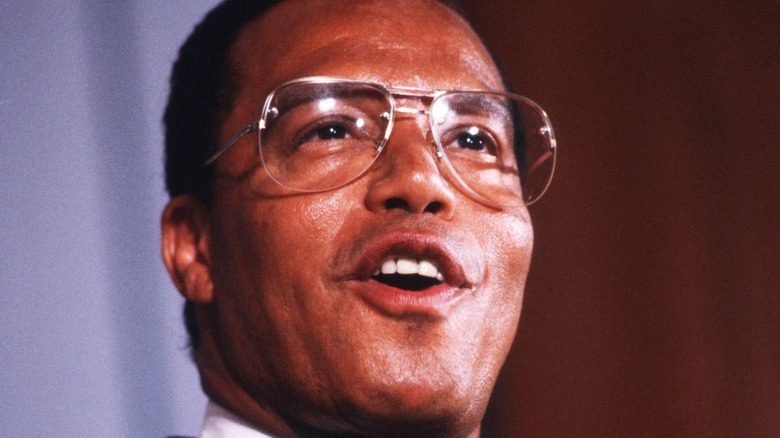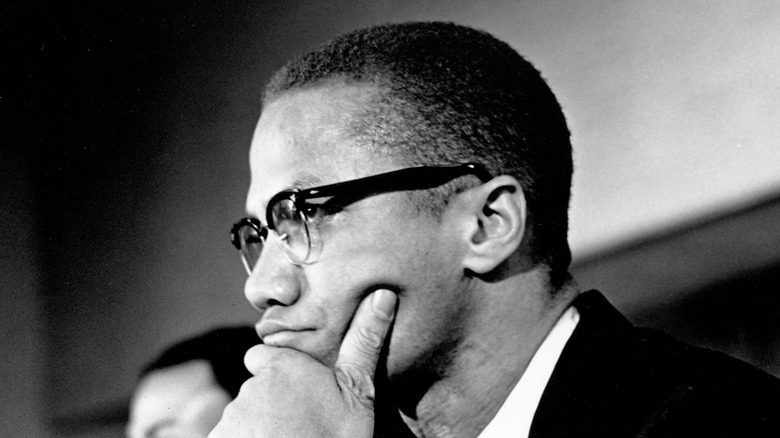The Truth About Malcolm X's Relationship With Louis Farrakhan
Along with Martin Luther King Jr. and Rosa Parks, Malcolm X and Louis Farrakhan are perhaps two of the most well-known figures in the American civil rights movement. Connected through their involvement in the Nation of Islam — an African-American religious organization founded in 1930, according to Britannica — X was first a mentor for Louis X, later Louis Farrakhan. In 1964, however, X had become disillusioned with the Nation's fundamentalist bent, and his own hardline rhetoric regarding race relations in America began to soften.
Subsequently, Malcolm X parted ways with the Nation of Islam, according to US History. Farrakhan, who would one day end up in control of the group in 1978, was grievously disappointed by Malcolm X's decision, calling him a traitor. In 1965, Malcolm X was assassinated — responsibility for the crime continues to be debated today — and Farrakhan's heated rhetoric aimed at Malcolm X was thought by many to have played a part in the killing.
Farrakhan was not directly responsible
The controversy around Farrakhan's potential role in the assassination of Malcolm X followed the African-American religious and political leader all the way up until the year 2000, most notably from Malcolm's own widow, Betty Shabazz, who in 1994 told The New York Times, "Of course, yes," regarding Farrakhan's role in the killing. "Nobody kept it a secret," she said. Farrakhan himself decided to clear the air in an interview with "60 Minutes" in 2000 (posted on YouTube), admitting that while he never ordered the murder of the iconic leader, his inflamed words around Malcolm X leaving the Nation of Islam likely worsened tensions between X and the African-American Muslim community, according to the Washington Post.
"As I may have been complicit in words that I spoke leading up to February 21st, I acknowledge that and regret that any word that I have said caused the loss of life of a human being," Farrakhan said at the time, to which Malcolm X's daughter responded, "I wish him peace," referring to Farrakhan. With this controversy somewhat settled, the focus can return to the important struggle for African-American civil rights that continues to this very day.

